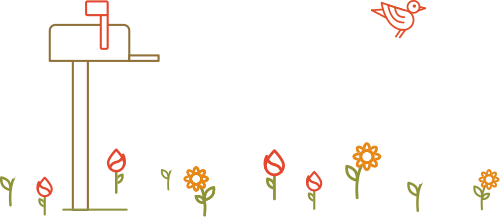For The Love of Food
Welcome to Friday’s For The Love of Food, Summer Tomato’s weekly link roundup.
Take some time out this weekend and read Michael Pollan’s latest article on the decline of cooking and the rise of food T.V. I also found a few articles that add to discussions from the previous two weeks, in particular the organic food controversy and eating healthy while fine dining. Some great recipes and food-related lifehacks are listed as well.
I read many more wonderful articles than I post here each week. If you’d like to see more or just don’t want to wait until Friday, be sure to follow me on Twitter (@summertomato) or the Summer Tomato Facebook fan page. For complete reading lists join me on the social bookmarking sites StumbleUpon and Delicious. I’m very active on all these sites and would love to connect with you there.
I also invite you to submit your own best food and health articles for next week’s For The Love of Food, just drop me an email using the contact form. I am also accepting guest posts at Summer Tomato for any awesome healthstyle tips you’d like to share.
This post is an open thread. Share your thoughts, writing (links welcome!) and delicious meals of the week in the comments below.
For The Love of Food
- Out of the Kitchen, Onto the Couch <<The must-read article of the week, and probably the month. Michael Pollan‘s latest commentary discusses the lost art of cooking, the role of television in food, what we’re losing because of it and what we can do to reclaim it. (New York Times Magazine)
- Why food is about more than nutrition <<Great companion article to Monday’s discussion about organic vs conventional produce. (New Scientist)
- Overnight Oatmeal: Steel-Cut Oats in 10 Minutes <<Love steel-cut oats but hate the 45 minute prep time? A few minutes of your time the night before can turn this healthy breakfast into a quick morning staple. (The Bitten Word)
- Reset Your Sleep Cycle with a 16-Hour Fast <<Cool food-related tip on how to avoid jet lag with fasting. Certainly worth a try for you frequent fliers. (Lifehacker)
- Mildly High Cholesterol at Midlife Linked to Alzheimer’s <<This is not the first piece of evidence linking heart health to brain health. Avoid losing your mind by upgrading your healthstyle. (New York Times)
- The 11 Most Important Rules For Healthy Eating…Yes, Most Important <<Some of the best healthy eating advice I’ve seen. (Dumb Little Man)
- Vitamin D levels in children: “shocking” <<My favorite part about this article is the quiz about vitamin D at the bottom. How much do you know? (SFGate)
- Staying Fit When Eating Is Your Job <<More on the topic of fine dining and health. How does Top Chef hostess Padma Lakshmi do it? This is also related to Pollan’s article. (New York Times)
- ‘Better’ junk food is about marketing, not health <<Another gem from Marion Nestle. Learn all about how the food industry is trying to trick you into thinking you’re eating healthy. (SFGate)
- Poached Shrimp with Olive Oil and Lemon Juice <<Delicious looking summer shrimp recipe. I especially like the addition of beet greens, a severely under-used and under-appreciated vegetable. (Spinach Tiger)




 Health
Health Habits
Habits Food
Food Weight
Weight 



 Better Than Butternut: Roasted Delicata Squash Recipe
Better Than Butternut: Roasted Delicata Squash Recipe 10 Simple Ways To Eat Less Without Noticing
10 Simple Ways To Eat Less Without Noticing Juicing: Stupid and Pretentious or Nourishing and Enlightening?
Juicing: Stupid and Pretentious or Nourishing and Enlightening? 10 Tasty Carbs That Won’t Make You Fat
10 Tasty Carbs That Won’t Make You Fat How To Start Working Out When You Don’t Like To Exercise
How To Start Working Out When You Don’t Like To Exercise
 Focus More on Your Brain and Less on Your Diet if You’re Serious About Losing Weight
Focus More on Your Brain and Less on Your Diet if You’re Serious About Losing Weight Home Court Habits: The Secret to Effortless Weight Control
Home Court Habits: The Secret to Effortless Weight Control 10 Reasons You Aren’t Losing Weight When You Think You’re Doing Everything Right
10 Reasons You Aren’t Losing Weight When You Think You’re Doing Everything Right How To Burn More Calories Without Breaking A Sweat
How To Burn More Calories Without Breaking A Sweat The 7 Habits of Highly Effective Foodists
The 7 Habits of Highly Effective Foodists













